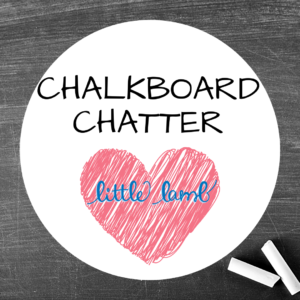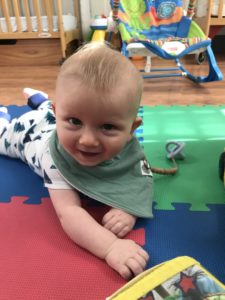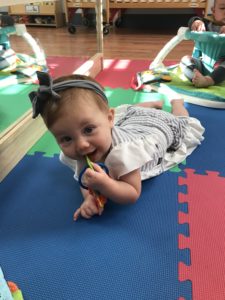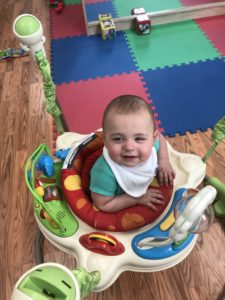By: Lisa Murphy, Pre-Kindergarten 2 Teacher
I love walking past our infant room and seeing the cute babies’ every day! It is refreshing to see our infant teachers interacting with them, and the bond they have with the babies, and vice-versa. It got me thinking just how important it is for infants to have exceptional, quality care. It’s not just feeding them, or playing with them while encouraging early learning, it’s also about early brain development.
Brain science has taught us a lot over the last 30 years, one of the clearest findings is that early brain development is directly influenced by babies’ day-to-day interactions with their caregivers. Even before birth, babies have a built-in-expectation that adults will be available and care for their needs. Their very survival depends on this availability. If babies’ expectations for protection and nurturance are met, their brains experience pleasure and delight. These pleasurable early interactions stimulate the brain, motivating the baby to relate to those who care for them with great confidence and ease. If their expectations are less than adequately met, their confidence in getting their needs met through relationships may be challenged. When this occurs, emotional and social development suffers, and because babies’ emotional base is the foundation for all other learning, so do intellectual and language and development.
A baby’s early experiences in relationships, whether at home or in an early education environment, set the stage for future brain functioning. The information gathered in these early relationships is at the heart of a rich and complex brain-building process. As babies experience responses from their caregivers, their brains start to form expectations for how they will be treated and how they should respond. For example, when a baby fusses or cries, consistent adult responses that provide comfort help the child anticipate similar responses in the future. As the expectations are strengthened by similar experiences being repeated, babies’ brains construct perceptions of the social and emotional world in which they live. Those perceptions influence how babies understand their environment, relate to others, and engage in learning. When those experiences are positive, children perceive the behavior and messages of others in positive ways and are motivated to explore more and more of the world in positive ways, including people and things. When babies have repeated adverse early experiences, they come to expect the behaviors and messages of others to be negative, and they start to perceive new experiences with others in a negative way.
Whether babies’ early relationships are largely positive or negative significantly impacts their ability to manage stress. From birth to age 3, stress can have an especially adverse effect on brain development. When children have positive early relationship experiences, they develop emotionally secure attachments with their caregivers that buffer stress at various levels of intensity. If stress is severe and persistent, it becomes toxic and the emotional buffers provided by secure relationships are crucially important. When children have to cope with tolerable stress, emotionally secure relationships help children regulate their responses, and, once the stress subsides, refocus on the exploration of learning.
Simply put, “tender loving care” advocated by early childhood educators for many decades is not only the kind way to treat children, but a crucial part of early brain development.





